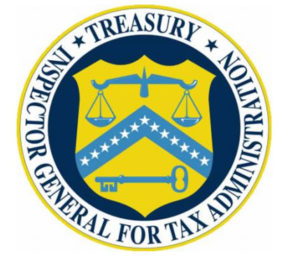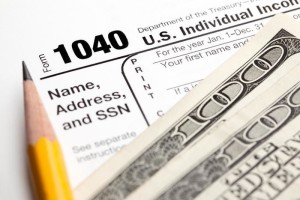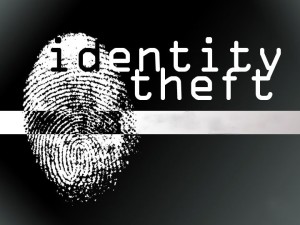IRS Pays Out Hundreds of Millions of Dollars In Erroneous and Fraudulent Tax Refunds When Processing Amended Tax Returns
Tuesday, August 6th, 2019 @ 8:08PM
One of CFEG’s missions is to expose wasteful government spending within the IRS and other federal government agencies and find solutions to such problems through research, public awareness, education and legislative and program changes and initiatives.
CFEG reports that on July 31, 2019 the Treasury Inspector General For Tax Administration (TIGTA), issued a report titled, Actions Have Not Been Taken to Improve Amended Tax Return Review Procedures to Reduce Erroneous and Fraudulent Refunds. This report focused on the manual processing of amended tax returns which have resulted in the IRS paying out millions of dollars in erroneous and fraudulent refunds. https://www.treasury.gov/tigta/auditreports/2019reports/201940042fr.pdf
Since 2011, TIGTA has issued four reports pertaining to the IRS’s manual processing of amended tax returns resulting in taxpayers receiving potentially erroneous tax benefits. In its report of April 2014, TIGTA found from a sample of 259 of the more than 1.1 million amended tax returns that claimed a tax refund of $500 or more in Fiscal Year 2012, it identified 44 (17 percent) tax returns for which the IRS issued potentially erroneous tax refunds totaling $103,270. https://www.treasury.gov/tigta/auditreports/2019reports/201940042fr.pdf Based on these results, TIGTA estimated that the IRS potentially issued more than $439 million in potentially erroneous tax refunds claimed on 187,421 amended returns in Fiscal Year 2012 and potentially more than $2.1 billion in potentially erroneous tax refunds claimed on amended tax returns over the next five years. TIGTA also reported that 126 (49 percent) of the 259 amended returns it reviewed included a revised Form 1040 with the amended tax return. These taxpayers submitted the revised Form 1040 with their amended tax return because the taxpayer used the Form 1040 to work through the detailed computations required on an original tax return to recompute the tax benefits to be entered on the Form 1040X.
TIGTA recommended to the IRS that the agency revise Form 1040 to enable taxpayers to amend their original tax return using this form. It also recommended that the IRS expand electronic filing (e-filing) to include amended tax returns. TIGTA estimated that the IRS could potentially save more than $17 million in processing costs during Fiscal Year 2012 if it had allowed taxpayers to e-file their amended tax return. The IRS disagreed with this recommendation. However, the IRS stated that it would consider the format and the appearance of the Form 1040X to include more specific information related to changes to income in conjunction with the implementation of e-filing of amended returns. https://www.treasury.gov/tigta/auditreports/2019reports/201940042fr.pdf
Employee Processing Errors Continue to Result in Erroneous Refunds
TIGTA reviewed a statistically valid sample of 235 of the more than 1.1 million amended tax returns processed during Processing Year 2017. TIGTA found 33 (14 percent) questionable amended returns with refunds totaling $74,974. Based on the result of their sample, TIGTA estimates that the IRS issued nearly $359.9 million in potentially erroneous tax refunds claimed on 158,397 amended tax returns during Processing Year 2017. TIGTA forecasted that the IRS could issue nearly $1.8 billion over the next five years. https://www.treasury.gov/tigta/auditreports/2019reports/201940042fr.pdf
Of the 33 returns TIGTA identified as questionable, 23 resulted from employee processing errors totaling $58,204 in potentially erroneous tax refunds. Based on the results of their sample, TIGTA estimated that the IRS issued nearly $279.4 million in potentially erroneous tax refunds claimed on 110,398 amended tax returns during Processing Year 2017. TIGTA forecasted that the IRS could issue nearly $1.4 billion in potentially erroneous tax refunds claimed on amended tax returns over the next five years. https://www.treasury.gov/tigta/auditreports/2019reports/201940042fr.pdf
For the 23, errors included:
- Tax examiners erroneously allowing adjustments when the taxpayer did not include the required form with the amended return. These included returns in which tax examiners processed claims to change the taxpayer’s standard deduction to itemized deductions.
- Tax examiners erroneously allowing deductions to which taxpayers were not entitled. These included returns in which tax examiners allowed deductions for student loan interest when taxpayers claimed the deduction for a nondependent student.
- Tax examiners did not forward amended returns to the Examination function when required.
- Tax examiners erroneously adjusted credits on associated taxpayer tax accounts. These included returns in which the tax examiner incorrectly adjusted a refundable tax credit that the taxpayer neither requested nor was entitled. https://www.treasury.gov/tigta/auditreports/2019reports/201940042fr.pdf
Efforts to improve error detection and reduce taxpayer burden have not progressed
To improve its detection of errors on amended tax returns, in April 2014 TIGTA recommended that the IRS enable taxpayers to e-file their amended tax returns. In response, the IRS management stated that they submitted funding requests for an additional $4.1 million in both Fiscal Years 2016 and 2017 to update the systems to enable taxpayers to e-file amended returns through the Modernized e-File system but due to the high cost of the initiative and competing priorities, their requests have not been funded. https://www.treasury.gov/tigta/auditreports/2019reports/201940042fr.pdf
Questionable amended returns would have been rejected by current e-file rules
The remaining 10 of the 33 questionable returns that TIGTA identified did not involve an employee error. These questionable amended tax returns resulted in $16,770 in potentially erroneous tax refunds. Based on the results of TIGTA’s sample, it estimated that the IRS issued nearly $80.5 million in potentially erroneous tax refunds claimed on 47,999 amended tax returns during Processing Year 2017. TIGTA forecasted that the IRS could issue nearly $402.5 million in potentially erroneous tax refunds claimed on amended tax returns over the next five years. The errors which TIGTA identified relative to these 10 returns would have been identified and the return rejected if processed electronically. https://www.treasury.gov/tigta/auditreports/2019reports/201940042fr.pdf
There would be a substantial cost benefit associated with expansion of e-file and modification of Form 1040 because these would reduce processing costs and erroneous refunds
The IRS’s estimated $4.1 million to enable e-filing of amended returns is a small fraction of the $63.5 million in additional processing costs TIGTA estimated that the IRS expended between Fiscal Years 2013 and 2016 by not implementing their recommended changes. TIGTA estimated that there are billions of dollars in erroneous refunds issued. It forecasted that the IRS will expend more than $79.4 million in additional processing costs over the next five years because taxpayers are unable to e-file their amended tax return. https://www.treasury.gov/tigta/auditreports/2019reports/201940042fr.pdf
In sum, TIGTA’s findings show that the IRS could issue over $1 billion on erroneous tax refunds claimed on amended tax returns over the next 5 years by not correcting employee processing errors such as, erroneously allowing adjustments, erroneously allowing deductions, not forwarding amended returns to the Examination function when required, erroneously adjusting credits on associated taxpayer accounts and not allowing for e-filing of amended tax returns. The IRS could also save more than $79.4 million in additional processing costs if their system was updated to permit amended tax returns to be e-filed as opposed to requiring the filing of paper returns.
Posted by cfegov
Categories: IRS WASTEFUL SPENDING












